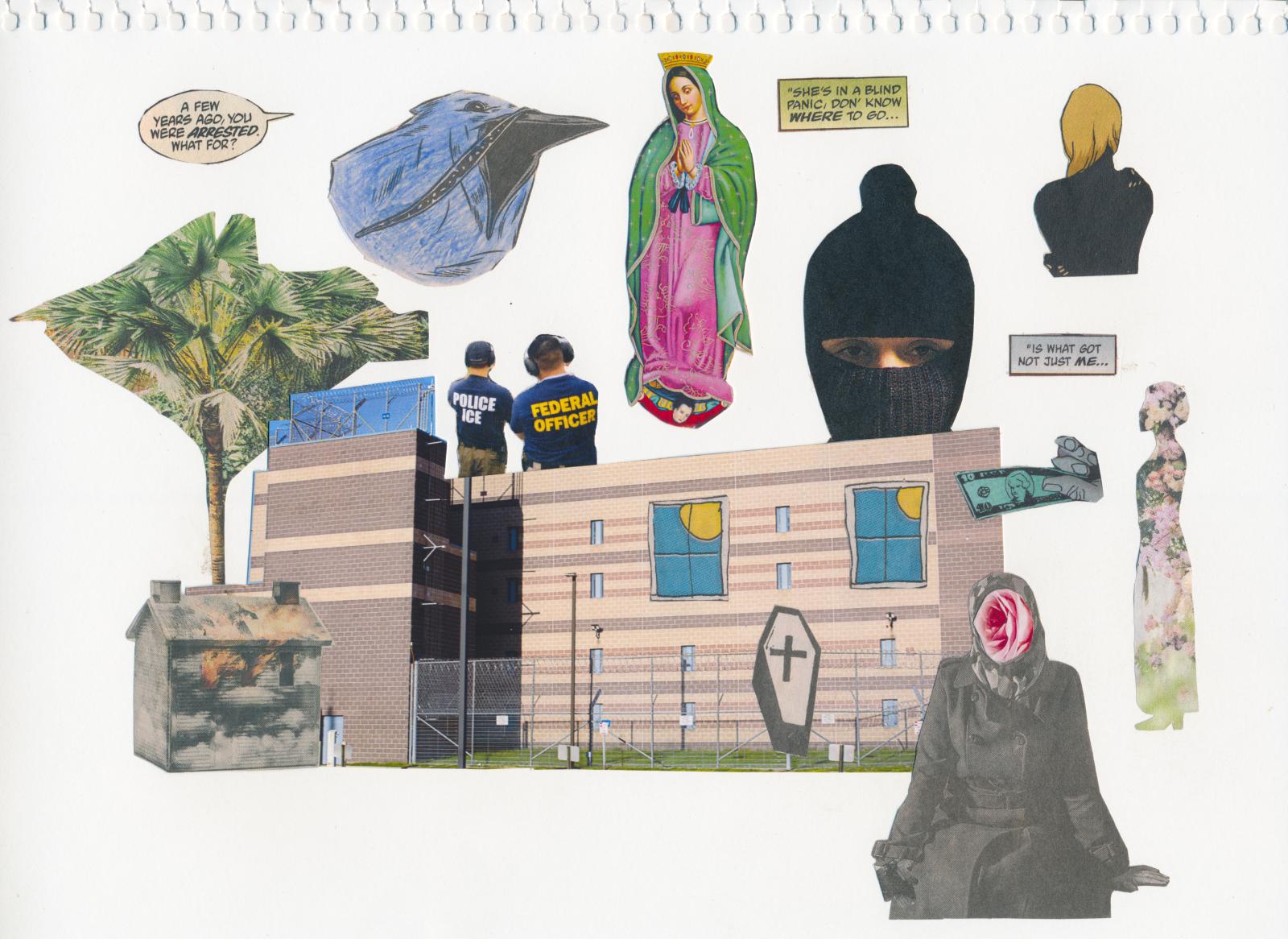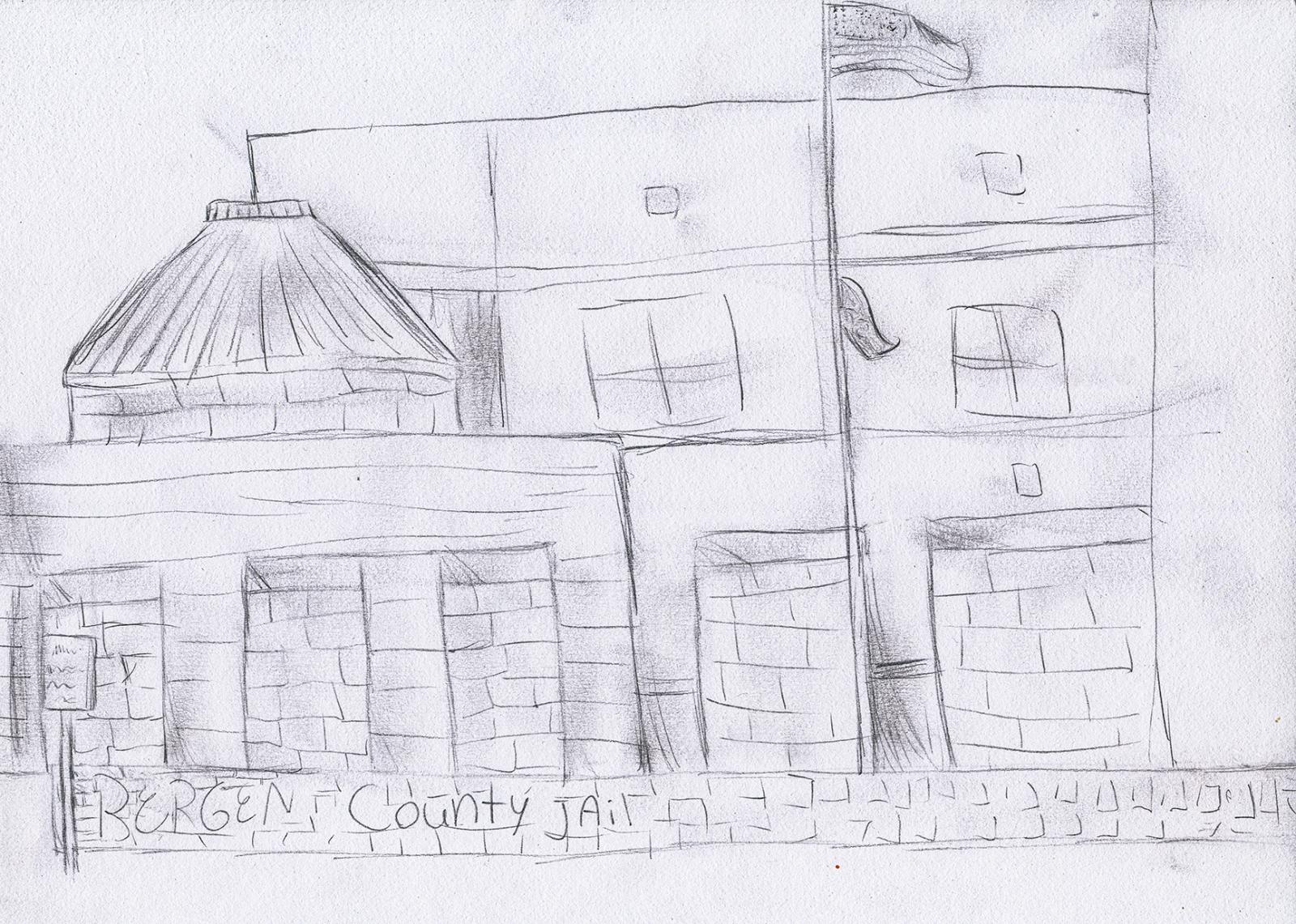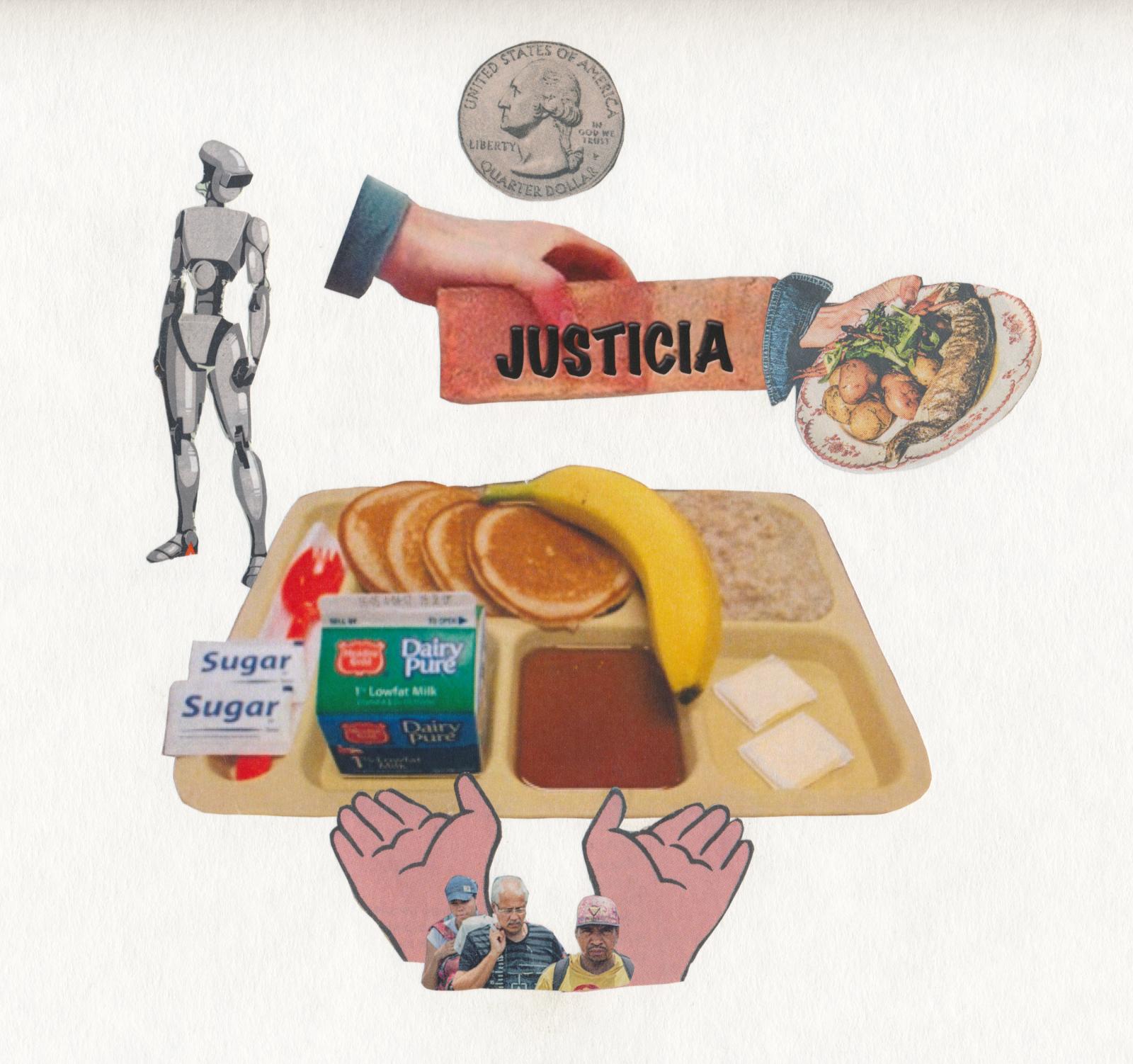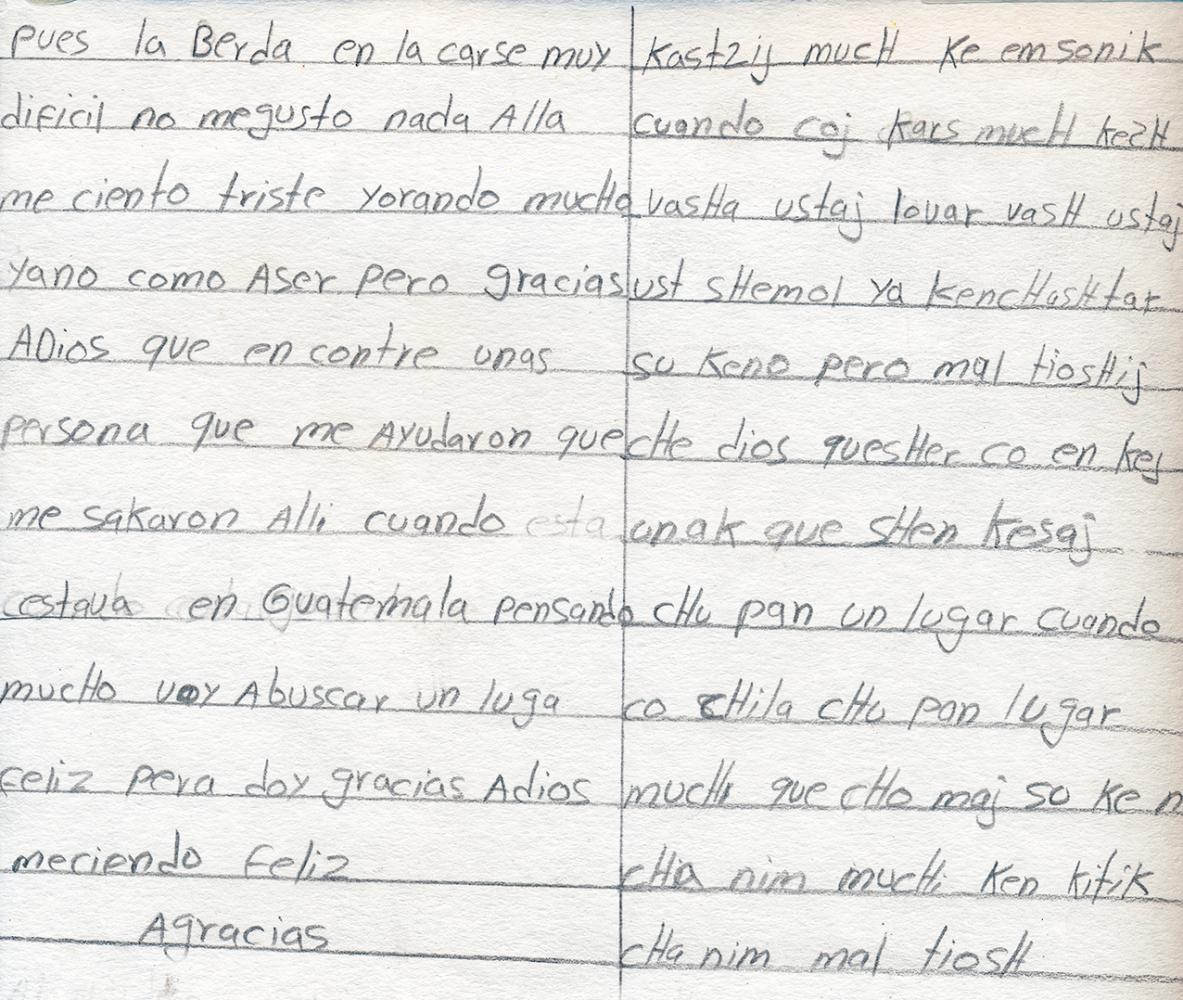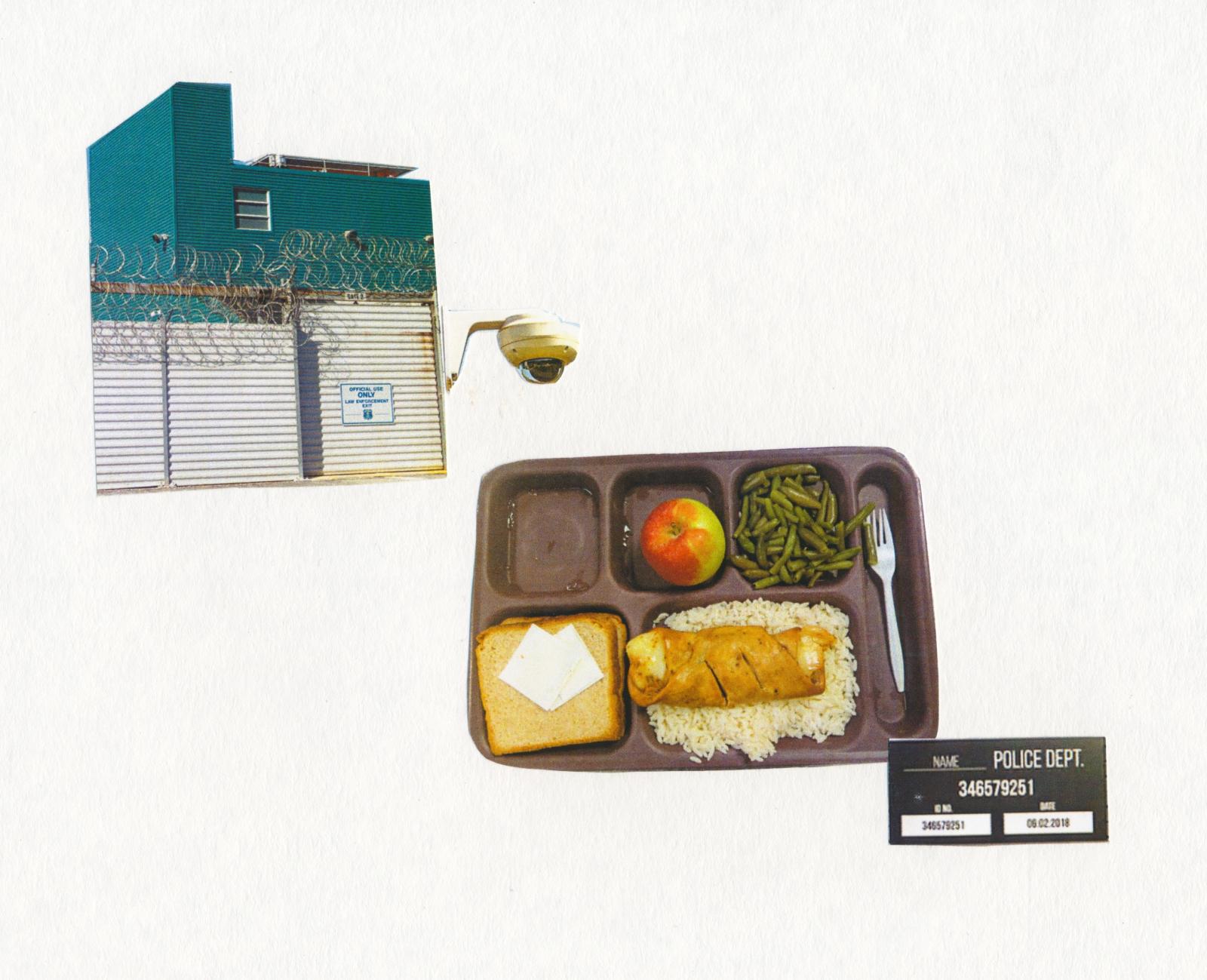Since 2019, I have been developing a collaborative project with migrants that explores, through photographs, collages, drawings, and written narratives, how the architecture and infrastructure of detention in northern New Jersey shape not only the physical experience of confinement, but also the emotional landscape, social dynamics, and mental well-being of those who pass through these systems.At the heart of this project is a series of poems composed as visual and textual collages. These works draw from a range of materials—oral histories and testimonies, legal documents, news headlines, newspaper archives, and fragments from social media platforms like Twitter and Instagram. Each poem becomes a fragmented document, a layered echo of voices both silenced and resilient. They take form through acrostics, alphabetical sequences, and prose poems—structures that mirror and resist the bureaucratic mechanisms that seek to define migrant identities.Parallel to this, I am investigating the bureaucratic and popular lexicon surrounding migrant arrests and incarceration. Terms such as Alien, Undocumented, and Migra, as well as acronyms like ICE and DHS, serve as entry points for poetic excavation. These words—steeped in surveillance, control, and categorization—are reimagined through acrostic forms, disassembled and reassembled to reveal the human stories they obscure.This body of work seeks to interrupt the cold language of policy with the warmth and weight of lived experience—inviting viewers to read between the lines, within the gaps, and across the margins of state-sanctioned narratives.
Also by Cinthya Santos-Briones —
For more access

